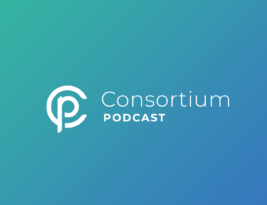This is Episode 32 of the Consortium Podcast, an academic audio blog of Kepler Education. In this episode, Scott Postma sits down with Dr. Chris Schlect to discuss the Liberal Arts, its history in classical thought, what the liberal arts are, and what they are not. Dr. Schlect is the Senior Fellow of History at New Saint Andrews College, where he teaches courses in ancient and medieval civilizations, US history, the history of American Christianity, …
Author: Scott Postma
This is Episode 31 of the Consortium Podcast, an academic audio blog of Kepler Education. In this episode, we announce the new lineup of podcasts for the upcoming year. The Consortium Podcast is where listeners can listen into engaging academic conversations with teachers, authors, and professors engaged in Classical Christian Education. The Everlasting Education podcast will continue in same vein as the earlier episodes of the Consortium podcast with Scott Postma and Joffre Swait taking a cue …
This is Episode 30 of the Consortium Podcast, an academic audio blog of Kepler Education. Classes at Kepler Education have begun and in this episode, Scott Postma and Joffre Swait discuss some of the important ways students can have a successful academic year. Education is a student’s vocation. It’s a real calling for a specific time of a young person’s life and there is much to be gained by a thankful and thoughtful student. Student …
There is a single question every teacher will eventually hear, and every student will be tempted to ask: Why do we have to learn this? Sometimes the question is framed a little differently—like, when am I ever going to use this in real life?—but what might be the oldest question in education is in one of its various forms just begging to be asked. The motivation behind the question is often something like “this subject …
The first knowledge we have of any thing is the delight we take in our senses when we encounter the thing (i.e., an artifact, idea, text, etc.). Before we ever analyze the thing, we first recognize that we are aware, in some rudimentary way, that a desire is being satisfied (i.e, the use of one or more of one’s senses). This, says Aristotle, is how we know that mankind, distinct from the animals, desires to …
There is a process of inquiry that is indispensable for unearthing human knowledge and only the person whose mental habits conform to this process can be called educated in a classical or universal sense, says David Hicks. This process basically consists of three parts: General curiosity—asking a wide range of questions Forming hypotheses—exercising one’s imagination in forming hypotheses Testing hypotheses—Discover a method of testing the consistency of the hypothesis with known facts “This bend of …


